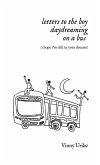Rilke's The Book of Hours is best stated by Wolfgang Leppmann in his inestimably valuable biography of Rilke, entitled Rilke: A Life (New York: Fromm International, 1984). This paragraph is quoted from page 115: "With the New Poems, the Duino Elegies, and the Sonnets to Orpheus, the Book of Hours is one of the masterworks of modern German poetry.It's title is taken from the "livres d'heures," breviaries compiled for lay worship and often ornamented with means of structuring the devotional day. Taken together, Rilke's poems do represent a spiritual journal . . . The sense of breviary is underscored by a fictional device that is followed consistently in the first book, sporadically preserved in the second, and abandoned in the third: the individual poems are in fact prayers being recorded by a Russian monk in his cell." With this in mind, translating such a work into English is a humbling task.Although, as Leppmann posits, the quality of the lyric is masterful, and taken with Rilke's early insights into spirituality, since these were poems written when he was still a young man, aim high to articulate what is the unspoken inviolate streaming of the deep and expansive spirit, so to attempt to translate that into English is to craft, at best, as a translator, Rilke's inner angel as well as yours and mine, so the difficulty is in each detail, and angels, as we well know, love to dance on the head of a pin.
Bitte wählen Sie Ihr Anliegen aus.
Rechnungen
Retourenschein anfordern
Bestellstatus
Storno








